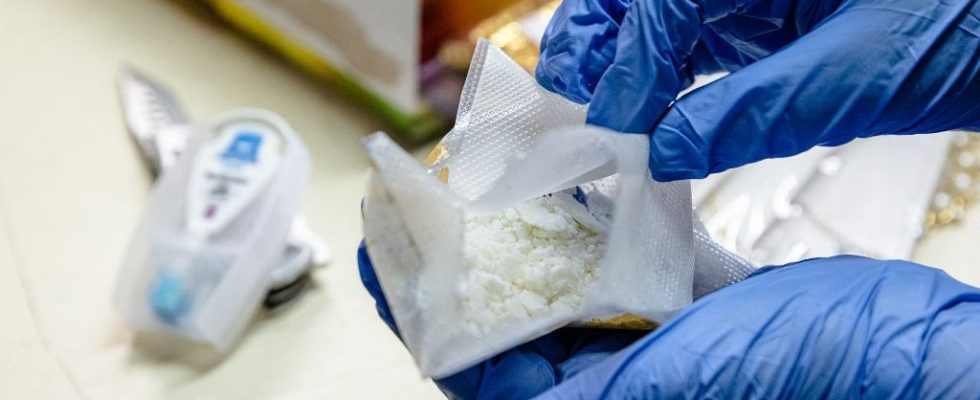The early hiring of a Romanian truck driver at the port of Antwerp on the morning of January 24, 2020 appears to have disrupted the plans of drug traffickers. It is ultimately because of this disruptive element that ten defendants are being tried before the Bordeaux Criminal Court until Wednesday, after the seizure of 730 kg of cocaine in a warehouse in the greater Bordeaux suburbs, on the night of the 24th to the 25th. January 2020. The main defendants appear in particular for attempted unauthorized transport of drugs, participation in a criminal association, possession of weapons. They face maximum sentences of ten to twenty years in prison.
Coming from Brazil, 660 blocks of cocaine (with an average purity of 76%) hidden among wooden slats and whose market value is estimated at 43 million euros, were transported to the port of Antwerp, in Belgium. There, thanks to an accomplice, the drugs were to be delivered but the driver responsible for transporting the truck to France (and a stranger to this traffic) took the wheel earlier. Management: a carpentry company based in Montussan, in Gironde, to transport exotic wood there. The drug owners, alerted by their Belgian accomplice, sent a team to recover the loot in Montluçon and Montélimar, before realizing that there had been a misunderstanding about the name of the town and that the Loaves of cocaine are in Montussan in the Bordeaux region.
An easy and lucrative move at first glance
Nourdine C., 43, was the one who led the team of four men from Lyon to Montluçon then to Montussan where they were arrested by the police, themselves alerted by the carpentry company. One of them was outside the warehouse, perhaps keeping watch, and managed to escape. An arrest warrant was issued against him.
Nourdine C. explains that initially it was supposed to be an easy stunt, it was simply a matter of recovering drugs from a stationary truck, during one of the truck’s regulatory breaks. Before diving in headlong, he doesn’t even know the quantity to recover, he tells the court, admitting to being motivated by the lure of profit. The confusion over the real destination of the truck complicates things and it is ultimately a false police operation using a flashing light which is planned, to intercept the truck on the move. On the stand, the defendant explains that in 24 hours “the mission evolves, I am told to take reinforcements, the case takes another turn”. In one of the convoy’s cars there are weapons including assault rifles, and upon discovering them he comments on an encrypted communications network that he is in a “terrorist’s car”, feeling overwhelmed by this paraphernalia.
An ambush for little hands?
In the heat of the moment, he did not realize it but in hindsight, he believes that he and his team were ambushed. “The merchandise does not belong to me and it is not my plan,” he emphasizes. The producer, director and director of this story, we don’t hear about him.” From his point of view, it was a trafficker who worked with the police who put them on this, because, from time to time, “you have to sacrifice heads”. The prosecutor, Bertrand Rouède, has little taste for his conspiracy theory and wonders about the benefit of bringing him down. “He wasn’t specifically targeting me,” he replies. These people are capable of recovering their belongings, we are not sending just anyone to recover 43 million euros of goods.” Listening to him, he has no connection with the traffickers who own the cocaine, they came to get him and he wasn’t suspicious enough. “All the mules are sacrificed throughout the world, we must send flesh to the pipebreaker,” he insists.
None of the three defendants questioned knows the order givers, if we are to believe their testimonies at the bar. The president is surprised that traffickers do not take more guarantees when it comes to such large quantities. “Tons have passed since I was incarcerated,” puts Nourdine C. into perspective.
“Some seem identifiable among the owners of the goods, we could have gone further,” believes lawyer Florence Vincent who defends Mounir B., one of the three Lyonnais arrested. “There is no European investigation,” adds Maître Philippe Screve, Nourdine C.’s lawyer. “We have a good seizure and we stop there.” Charles Moynot, president of the court, agrees that these are not big fish: “we know that the defendants are very involved in trafficking but they are not the sponsors”.
This Tuesday, the hearings of the defendants will continue with the team from Paris, which arrived in the warehouse a few hours after the Lyonnais.

